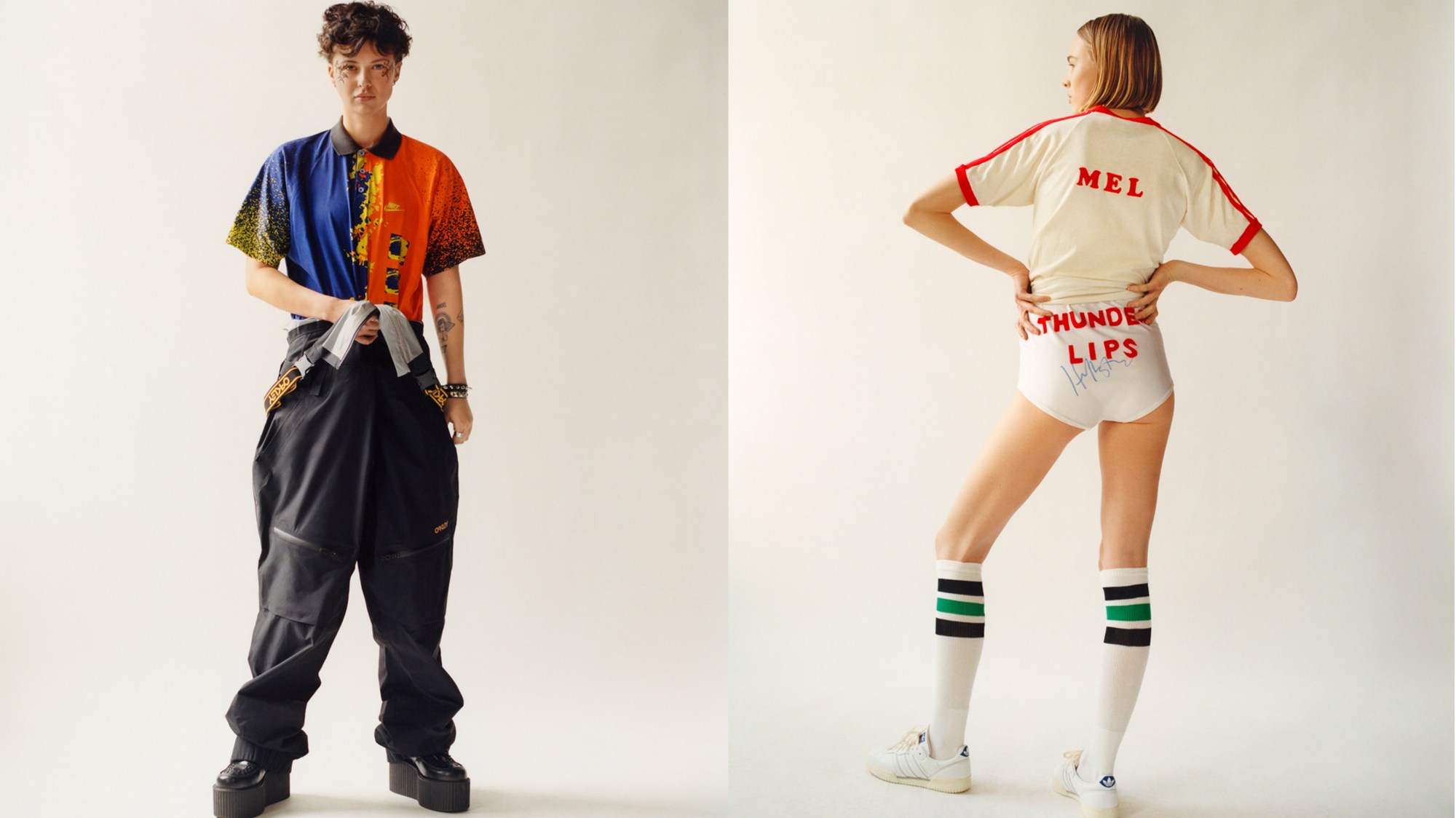This story originally appeared in i-D’s The Earthrise Issue, no. 368, Summer 2022. Order your copy here.
Since its founding in 2018, PHIPPS – the Paris-based label headed up by Spencer Phipps, an affable Californian with a passion for rock climbing and perhaps fashion’s best-kept beard – has won over industry folk and fashion fans alike for its inimitable, vintage-y sensibility. That’s not to say that the patched denims, park ranger shirts and pieces redolent of sports memorabilia it purveys look secondhand, but rather that there’s something to the spirit of outdoorsy Americana they’re imbued with that makes them feel like gems you’d have to carefully comb countless Beacon’s Closet rails to find.
In recent seasons though, that vintage-y feel has morphed into actual vintage – for a sizeable part of PHIPPS’ offering, at least. Through PHIPPS Gold Label, Spencer has unpicked assumptions that a fashion brand should be solely committed to selling ‘new’ clothes, presenting a precisely curated and customised edit of vintage pieces alongside his mainline collections. Specifically sourced to sit within the PHIPPS aesthetic universe, and embroidered with the brand’s logo, the garments that make up the Gold Label are given a fresh lease of life.
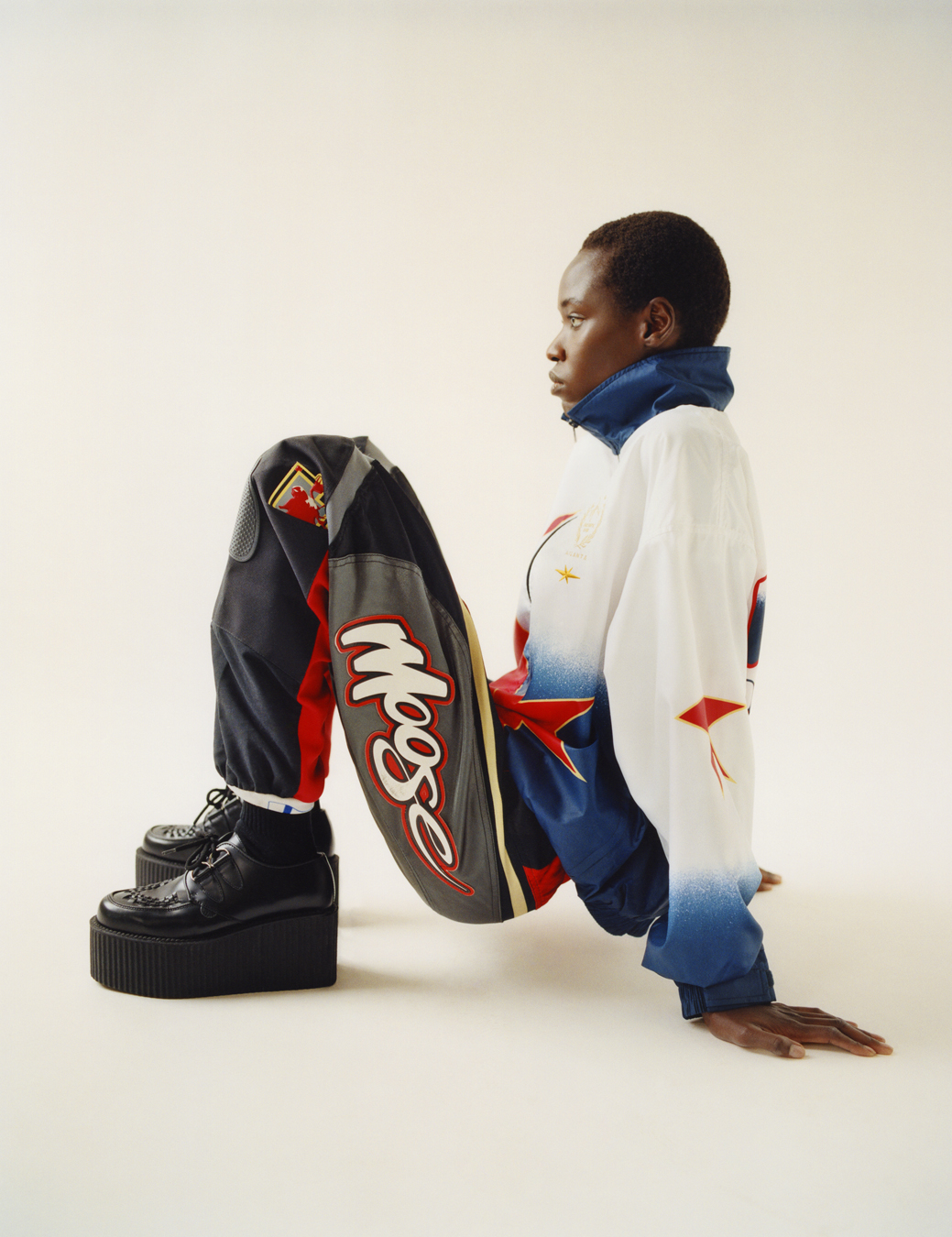
Granted, the current fashionability of the resale market is undeniable, with brands increasingly keen to explore potential avenues into the secondhand sphere, motivated by the urgent environmental case for fashion companies to develop circular production solutions – alongside the lucrative success of resales platforms like Depop and Vestiaire Collective. The intentions behind PHIPPS’ venture into vintage, however, are altogether more humble and frank. “When I started PHIPPS, one of the pillars of the brand was sustainability, and trying to do things in the most responsible way possible,” explains Spencer Phipps, sitting at his sun-dappled studio in the 10 ème arrondissement. “At a certain point though, when I was thinking about what is the most environmentally responsible way to do a pair of jeans and a flannel shirt, I realised that I hadn’t ever bought a new pair of jeans. I’ve only ever worn vintage. So I just wondered if there was a way to put that in the brand.”
An ethos of cross-pollination is what spurred the creation of PHIPPS Gold Label – though that’s not what it was known as at the very beginning: it simply existed as a capsule of vintage pieces quietly nested within the main offering. “We did it as a test. I put some pieces in the show, and didn’t really say anything,” he recalls. “And I then put a little area in the showroom, just to see if anyone would get it, and people freaked out. Like, all these buyers were coming in and being like, ‘How do I get this!’ I was, like ‘Well …’” It’s that approach that has allowed PHIPPS Gold Label – which spans customised 90s Man United shirts and Team Utah wrestling singlets, humble plaid shirts and briefs signed by Hulk Hogan – to sit so cosily within the brand’s universe. It’s the reason why “in our shows, we can take a suit from the mainline and put a vintage tee underneath it, and it doesn’t feel gimmicky,” Spencer explains.
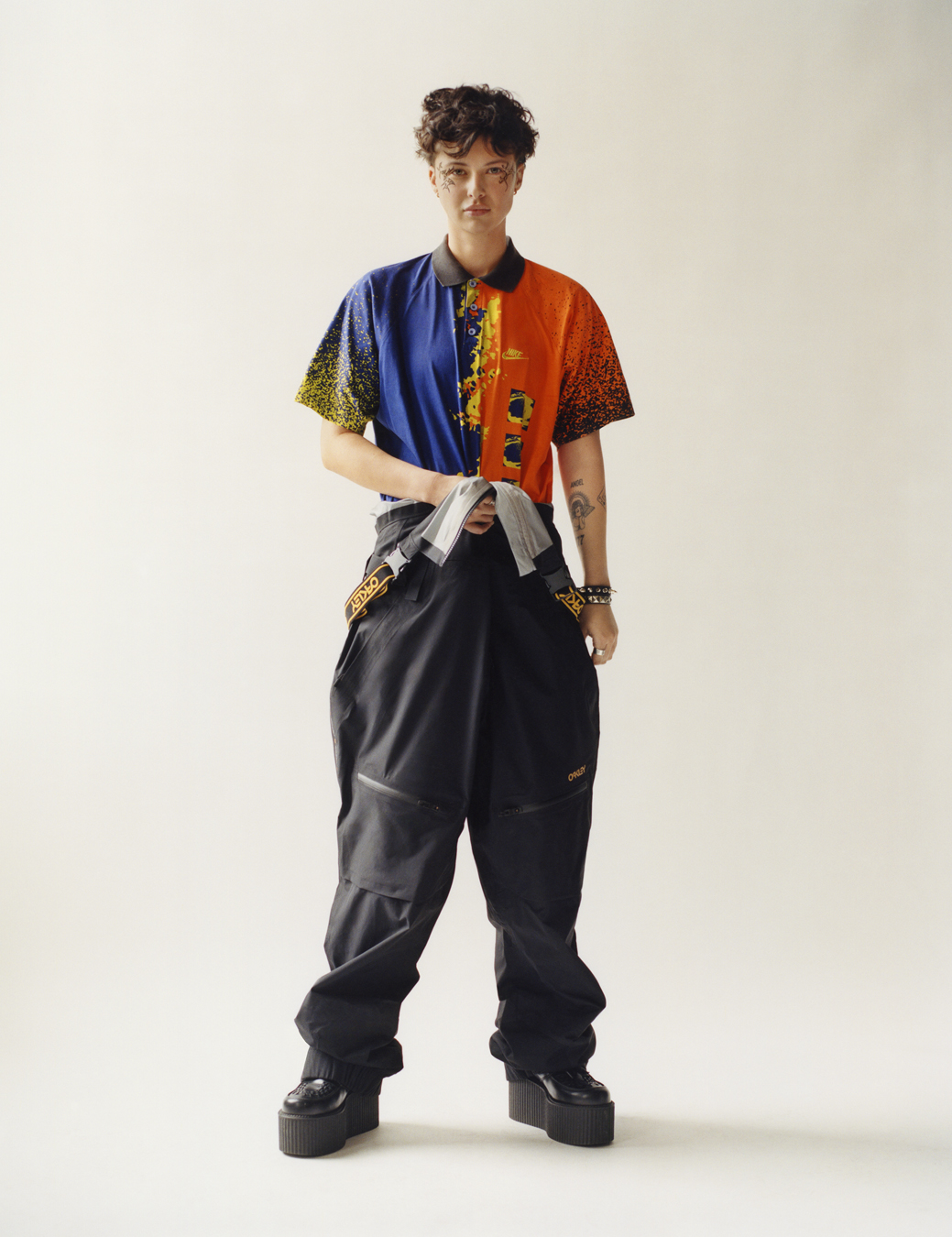
That meticulously curated edit of vintage items has since evolved into what Spencer describes as an “experimental upcycling project”, with everything from cotton T-shirts to rarities like Yao Ming’s basketball jersey from the 2005 All Star game given the PHIPPS treatment: the latter piece, for example, features an embroidered logo and has been spangled with glinting gold stars.
“It’s a little bit like modern couture,” Spencer notes. A notable point in his favour are the more accessible price points, even for “pieces that are crazy collectable and super rare.” Granted, choosing to work exclusively with vintage clothes has certain challenges, not least trying to scale a business where the materials you work with aren’t in reliable supply. Sure, there is a lot of secondhand clothing out there, but trying to source multiple items in wide-ranging size runs – like while sourcing for a collaborative capsule with Browns Fashion – is no simple task.
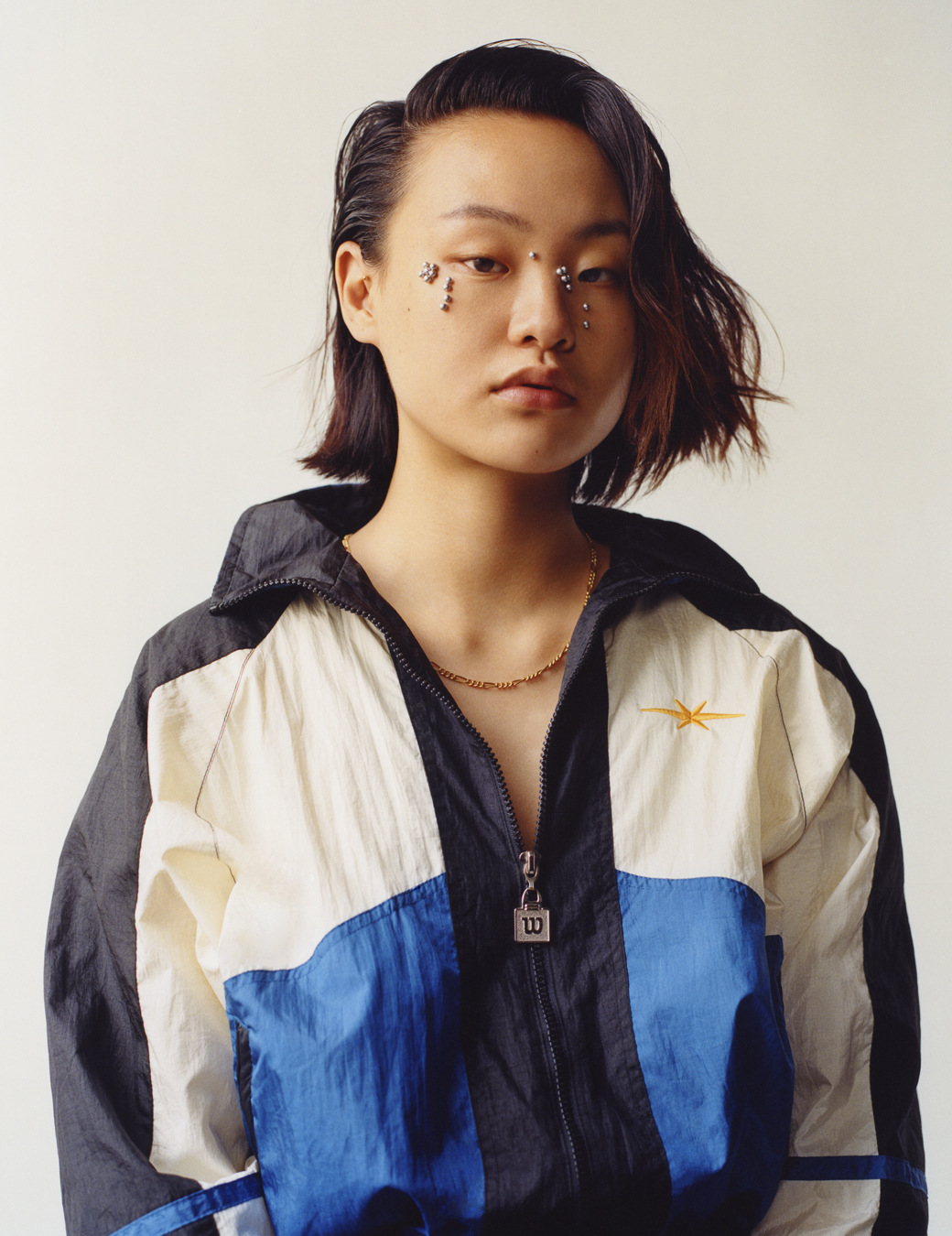
Still, while some retailers come to Spencer with a specific brief in mind – for LN-CC’s 10th birthday, for example, the Dalston-based concept store asked for a run of birthday and anniversary T-shirts – others have leaned into what makes vintage shopping so distinct: the surprise factor. He’s even begun to offer a “mystery box” – a lucky dip selection of sorts, where buyers don’t quite know what they’re going to get until their order arrives.“I always say, ‘Trust me, it’s gonna be cool, there will be very collectable weird stuff, but you just have to trust us!’” Spencer says. It is something that an increasing number of retailers are starting to do.
A large part of the reason why is that, with Gold Label, Spencer has managed to pick out pieces that nod to the past without feeling encumbered by it. “It’s about being contemporary,” he says. “It’s vintage but not necessarily nostalgic. I like to use these sorts of pieces to tell a modern story, and to have a point of view that feels very current – that looks at the way people are dressing now, and how those vintage pieces can be built into something that feels very today.”
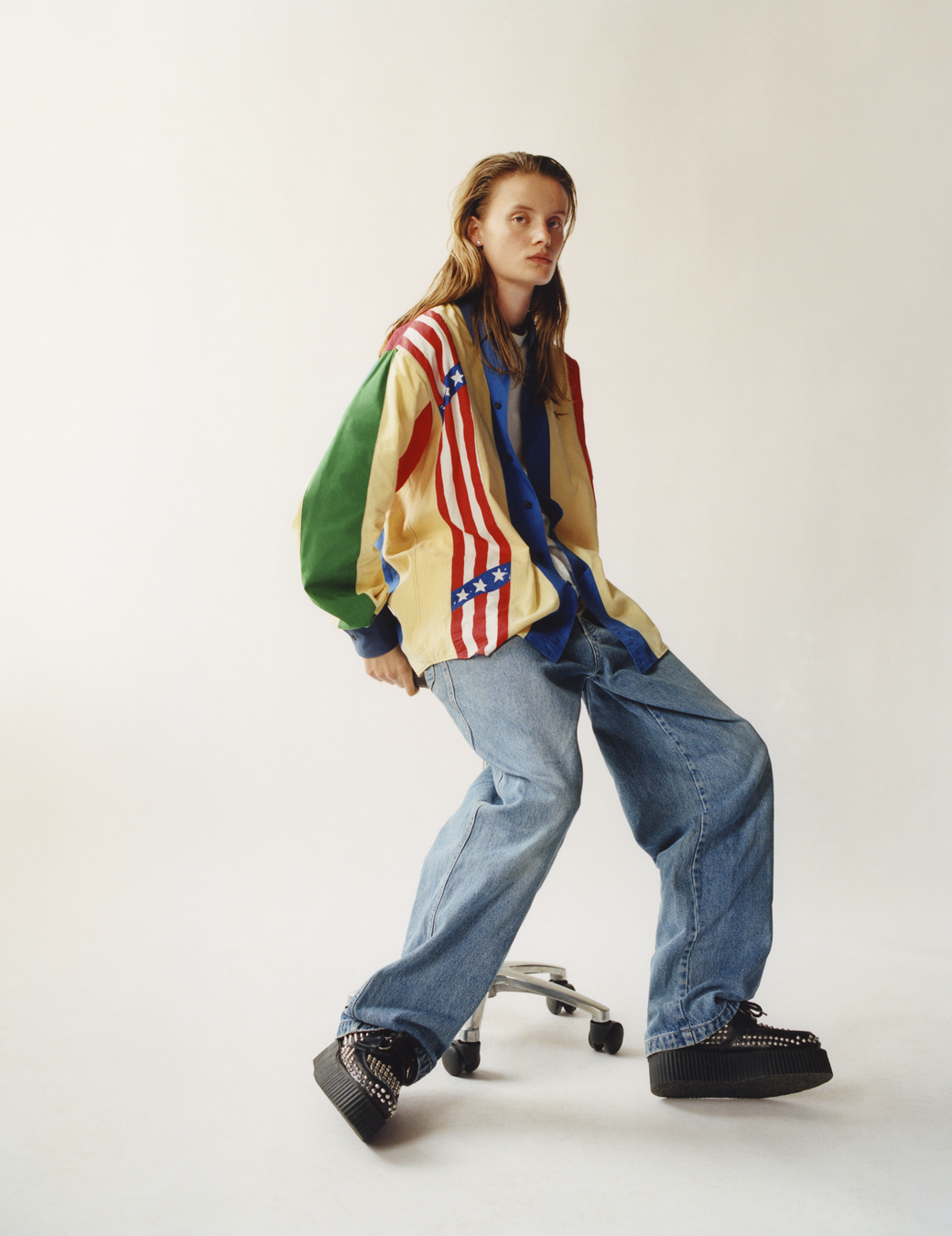
It’s certainly an approach that feels relevant from an aesthetic standpoint, but it’s also one that’s pertinent against the backdrop of the global fashion industry’s abysmal proclivity for waste production. “Vintage is ultimately the most responsible way to shop and participate in the fashion industry,” Spencer says. “You’re not using any new raw materials. You’re even saving clothes from sitting in a warehouse, and you’re getting a unique item.”
Still, while PHIPPS Gold Label was founded with the intention of demonstrating a responsible approach to clothing production, that hasn’t diminished the fashion credibility of the end results. Niche, distinct, and at times downright nerdy, they’re clothes created (or curated in this case) by one fashion fan for other like minds. “I’m out here just trying to find better solutions that are also viable business options, rather than being like, ‘We have to change everything and start from scratch!’” he says. “It’s about asking, ‘What can I do?’ So let’s explore vintage – I like it, other people like it, and let’s see if other brands respond in the same way as it grows.” Without naming names, it should be noted that they have. Still, in testament to the benevolence of his character, it’s not something that Spencer’s at all bitter about. “Ultimately, I’m just happy to be a part of the conversation, and part of that is also about not adopting the mindset of, ‘Well, I’m a sustainable brand and you can’t be because that’s my point of view!’ Let’s all be!”
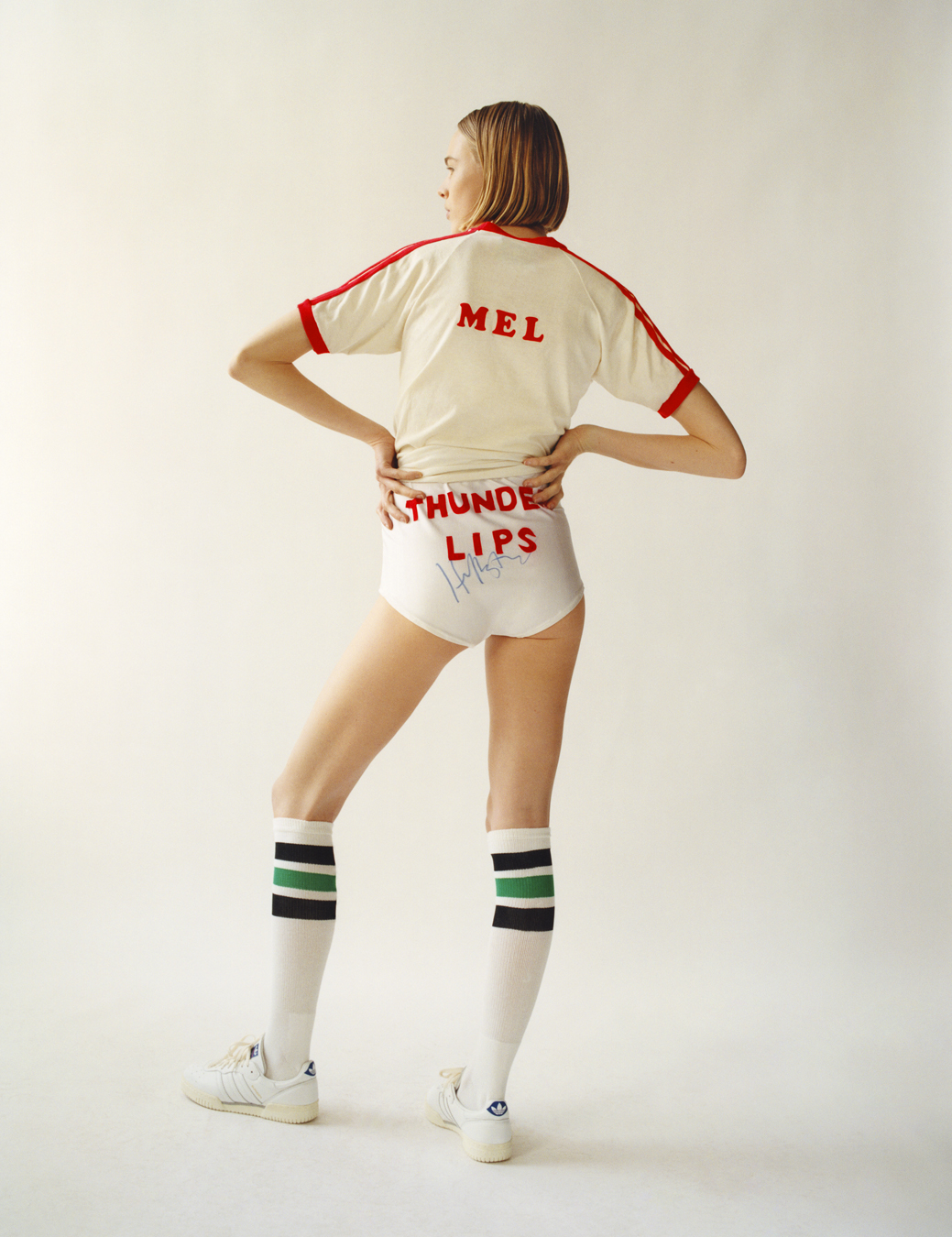
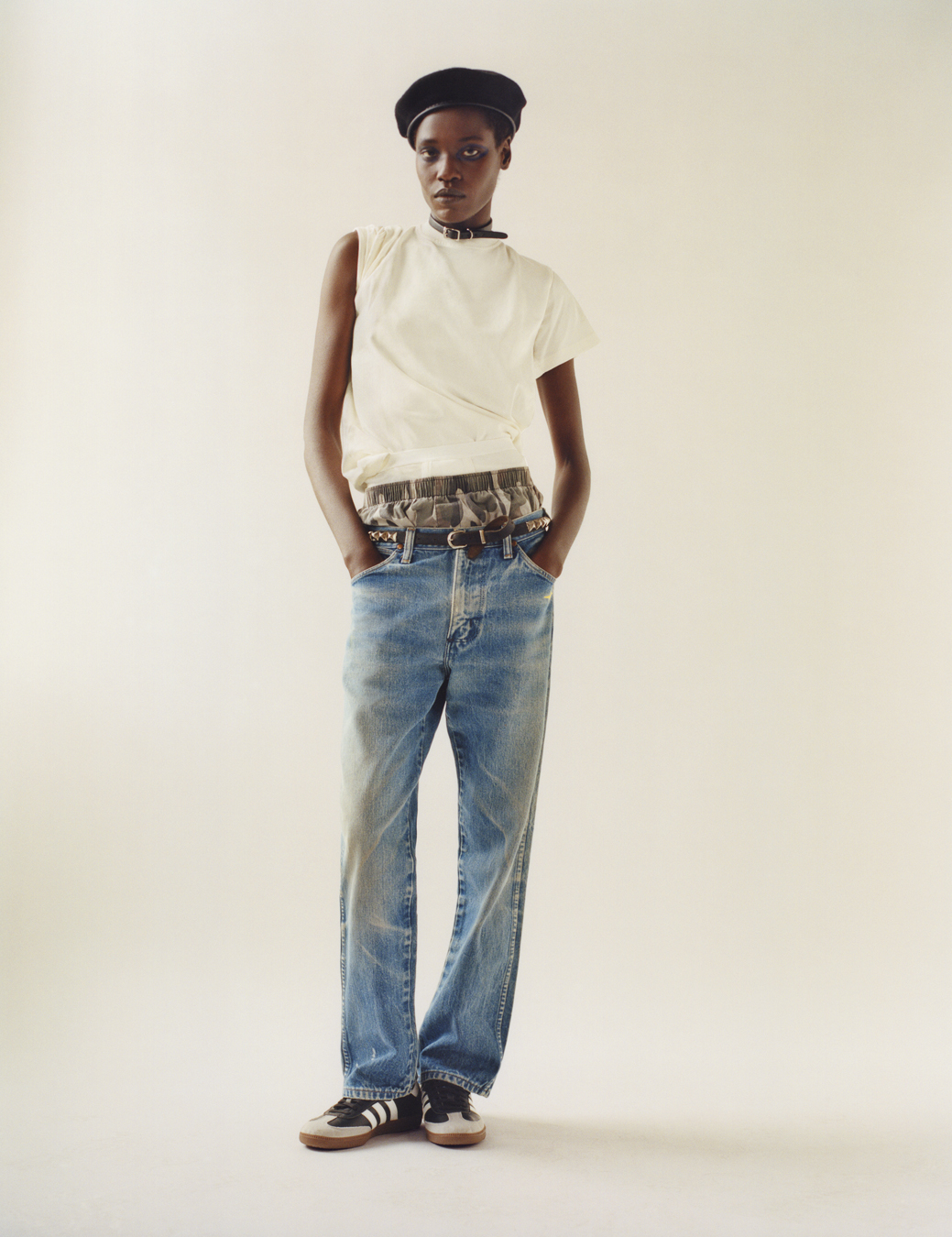
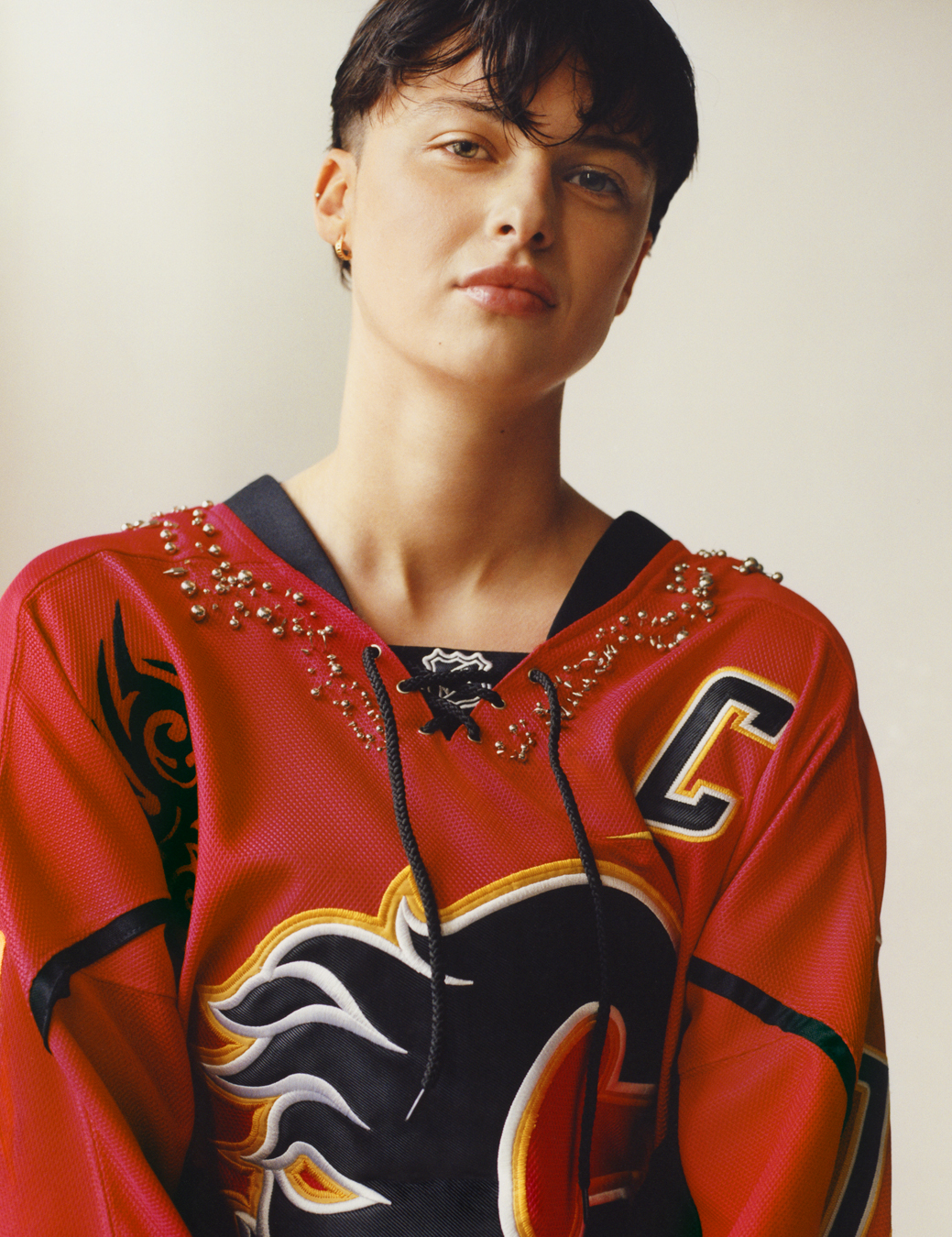
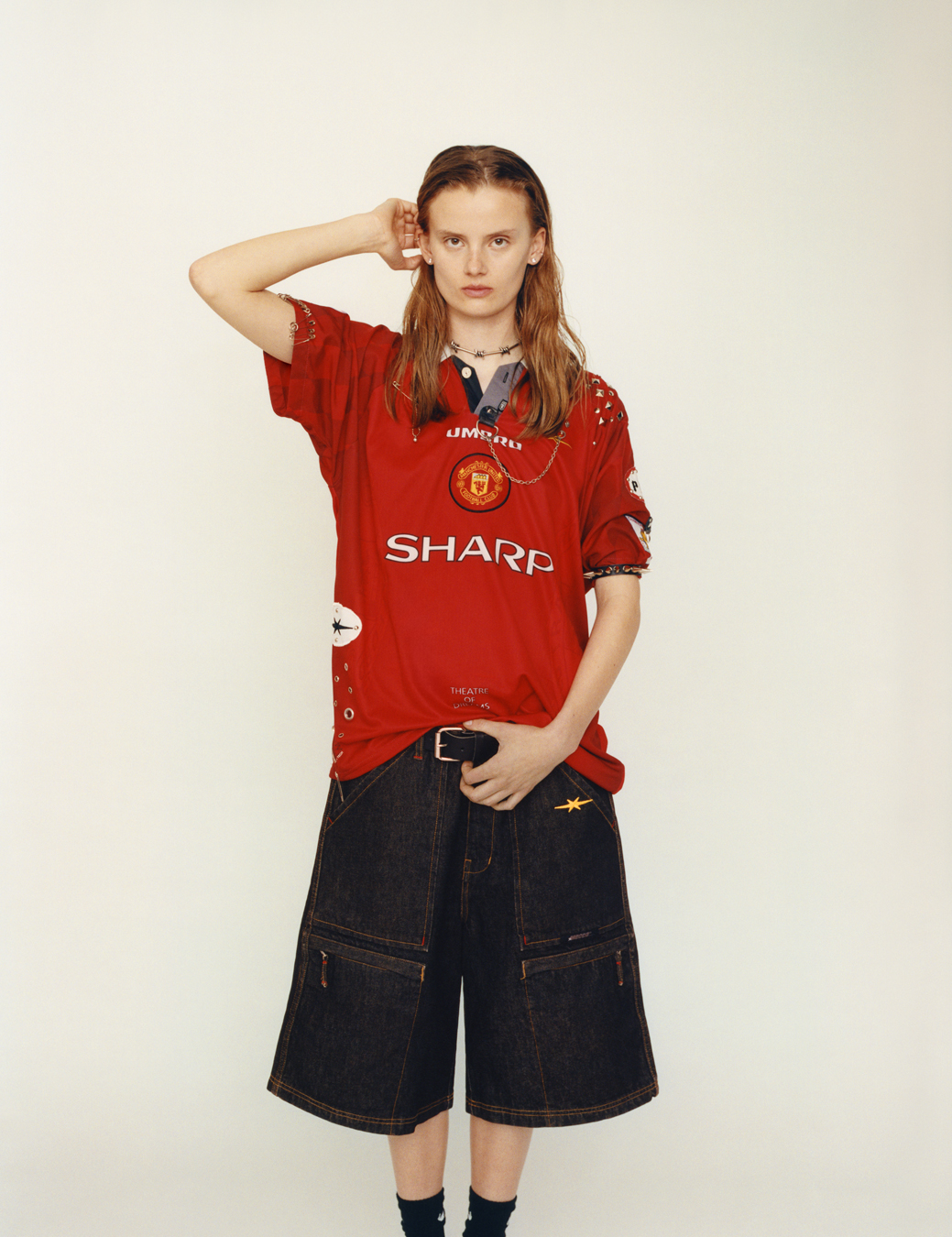

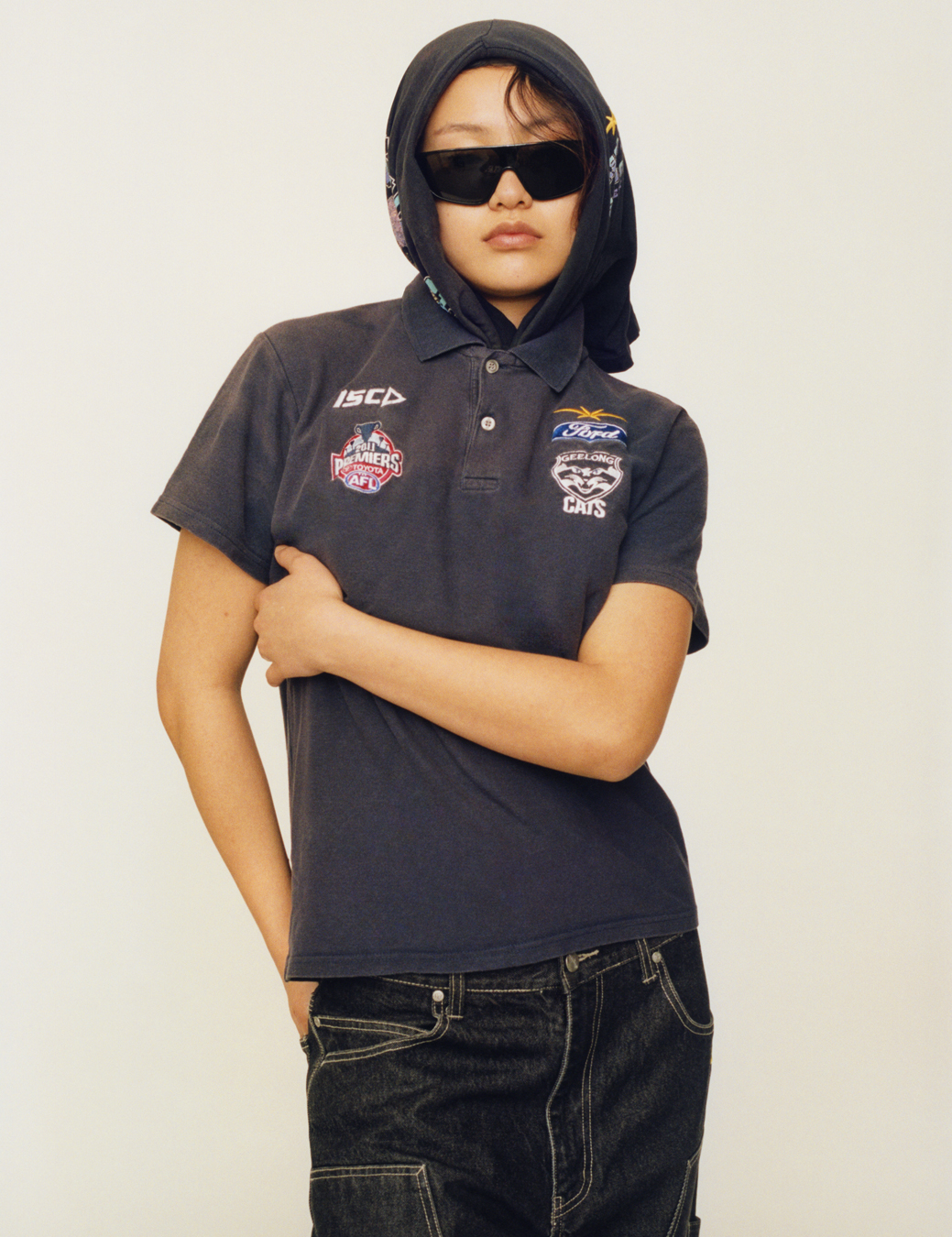
Follow i-D on Instagram and TikTok for more from the new issue.
Credits
Photography Lola and Pani
Fashion Dan Sablon
Hair Naoki Komiya at Julian Watson using Kiehl’s Creme with Silk Groom
Make-up Crystabel Riley at Julian Watson Agency using BYBI
Photography assistance Milan Rodriguez
Fashion assistance Lily Leetah Hill
Hair assistance Makoto Hayashi
Make up assistance Ayesha Anandji
Production Canvas Represents
Post production INK
Casting director Samuel Ellis Scheinman for DMCASTING
Casting assistance Alexandra Antonova
Models Puck Schrover at Platform Agency, Awar Odhiang at Models1, Saunders at Premier, Byul at IMG, Saskia Jesson and Mayor Dutie at Elite
All clothing PHIPPS GOLD LABEL
